You could be a well-established company or one that’s just starting: either way, your reputation matters.
It might seem like a mystical thing, this ‘unicorn’ of creating a good reputation. Luckily for you, though, there are strategies you can use to succeed.
With them, you can not only establish but nurture your reputation. These are also the sort of reputation management services that you should expect from an agency.
Reputation management is essential. In the digital age that we live in, selling has become a different thing entirely.
You need to look at how you appear to customers when you’re attempting to sell them a product or service. To help you, we have produced an online reputation management guide.
Well, the rise of social networks for one. And the ability for customer bases to be vocal.
These have both caused a significant shift in the way we view brands. We now expect them to be trustworthy and reputable as well as responsive.

Curating and promoting content on social networks is a must for any business these days. This could mean user-generated content or even customer-interactions.
Remember, prospects, customers, and potential clients are all talking about you. And what are they saying?
In this guide, we’ll teach you how to manage your reputation. Then you can counter, weaken, or eliminate harmful material about your brand online.
We’ll discuss how to proactively and reactively manage your reputation. But before we get into that, let’s look at some key terms.
We’ll be using these throughout this reputation management guide.
‘It takes 20 years to build a reputation and five minutes to ruin it.’
Warren Buffet

Lyfe Marketing
In this guide, we will dedicate sections to explaining these terms further. For now, let’s just nail down some standard definitions so that we have some idea of them.
Now that we understand some of the general terms we’ll be using, let’s go into more detail.
We said that reputation means beliefs or opinions held about you. But we can split that down into two categories, depending on who you are.
Let’s think about an example. You’re at a party, and your friend is introducing you to some new people.
What might they say about you? Will it be true? How will you meet those expectations?
This is an excellent way to think about reputation. It’s useful because it highlights that reputation is formed by other people’s perceptions of you.
But that doesn’t mean to say that you can’t influence those views, and where people can see or hear them.
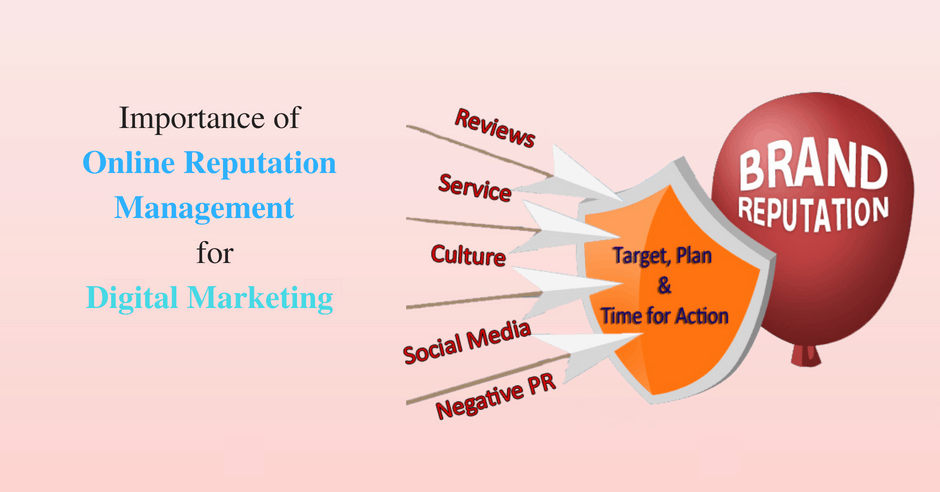
Think about which local restaurant you’d like to eat at tonight. Or you could even do a quick search for a new pair of headphones that you want.
What is it that makes you choose one place, or brand, over another?
Is it just aesthetic (because you like the way it looks)? Or, more likely, is it because people have been raving about something? Whether it’s a restaurant’s pizza or a landscaping company’s customer service.

Or have you read positive reviews about the sound quality of a certain pair of headphones? If it’s the latter, then it’s because their reputations precede them.
It’s also because we connect a positive reputation with a sense of trust. We’ll touch on this in a moment when we look at how and where reputation is formed.
For now, why don’t you go ahead and do a Google search for yourself or your brand? Make sure to do an image search also. We’ll wait.
Ask yourself this: do you like what you see?
To understand reputation, and everything that forms it, looks have a look at a video from Google.![]()
In this video, they walk us through what contributes to your reputation.
Your online reputation is ‘like a published book’. It’s made up of all the information that you post on the internet, and it can affect how others perceive you.
Stop now to have a think. What public and private information do you want about yourself, or your brand, out there?
Make sure to establish your own boundaries about, for example, the kind of content you share. Is it on-brand?
Remember, your digital footprint can be easy to track. There’s a trail leading back to you with things like pictures, comments, and shares. Ask yourself what the long-term implications of those could be.
Bear in mind how they might look in the future. Could something that you’ve said be misconstrued or taken out of context?
There’s also the issue of trust with your online reputation. Do you trust others – are you geotagging photos that could be traced by people you don’t know?
Or has someone shared something with you that they don’t want to be passed on?
Some of these principles do differ when we think in business terms. But it’s a useful understanding to have.
When you think about online reputation from your brand’s point of view, remember to ‘be kind online’. Behind those usernames are real people who might be your customers or investors.
The great thing about ORM is that you can have a say in and actually create it yourself. If you’re wondering why it’s worth the effort, then just remember that your reputation is an economic asset.
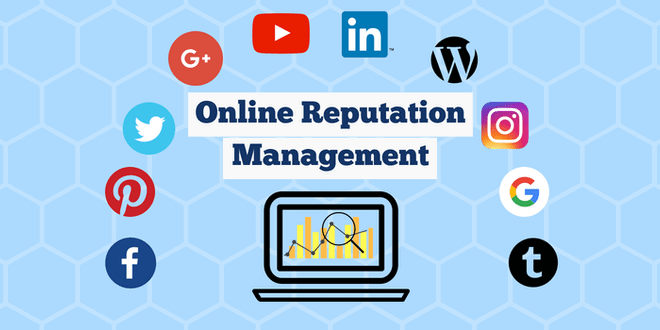
Remember that it was brand reputation that made us choose in the earlier example. The brand’s reputation made up our mind about which restaurant to pick, or which brand of headphones to buy.
Your main takeaway should be: too much bad information on the internet is, well… not great. But then again, not enough information is just as bad!
To have a brand reputation, the world first has to know you exist. Then, they have to evaluate you.
So we know now that you have a reputation, both as a person and a brand. But how is that reputation formed?

E Endorsements
Certain things can have a direct impact on how your reputation is established. They can also affect how it’s maintained or even ruined. These might include:
It sounds like a lot, right? The good news is that if you’re doing one thing positively, it tends to have a knock-on effect.
For example, let’s say that you use ‘white-hat’ (ethical) SEO practises. This has the desired result of improving your ranking while maintaining your integrity. But it can also positively affect your reputation.
This makes sense if we look at the opposite practise – ‘black hat’ SEO. This is where unscrupulous, usually spammy tactics, are employed to boost your rankings.
This can result in penalties. Also, it can make people perceive where and when they see you on the internet as spam. Then they might think negatively about your brand.
To learn what your reputation is like now think about conducting customer surveys.

Digital Ready
Surveys are a double-edged sword – in a good way! Community engagement is a great way to boost your reputation. Plus, the feedback can give you insights on where your brand needs work.
You can also check if your brand means something different in different languages. Or whether your name is the same, for example, as an inflammatory celebrity or slang term!
So you’ve cleared those hurdles, and your brand name itself isn’t going to cause any problems. Now you might be wondering where your reputation is actually created.
Well, reviews are one of the most influential sources of reputation. After all, if a thousand people tell you that a movie sucks…it probably does. The same principles go for your brand.
Your reputation can be called into question, or celebrated every day on:
Your reputation can be affected anywhere that people can talk about your business. When enough of these comments get amassed, it can have an impact on your online reputation.
Bear in mind that Google isn’t the only search engine. Your ORM efforts have to go beyond Google alone.
For example, Bing had 6 billion searches in 2019. Now, it’s improbable that they were all about your business and product reviews. Still, that’s a lot of chatter to be missing out on.
When we asked you to Google your brand earlier, were the top 5 on the SERPs even about your brand?
Have a look at the picture below. In it, one popular food delivery company had copy for a direct competitor on their1 ranked listing.
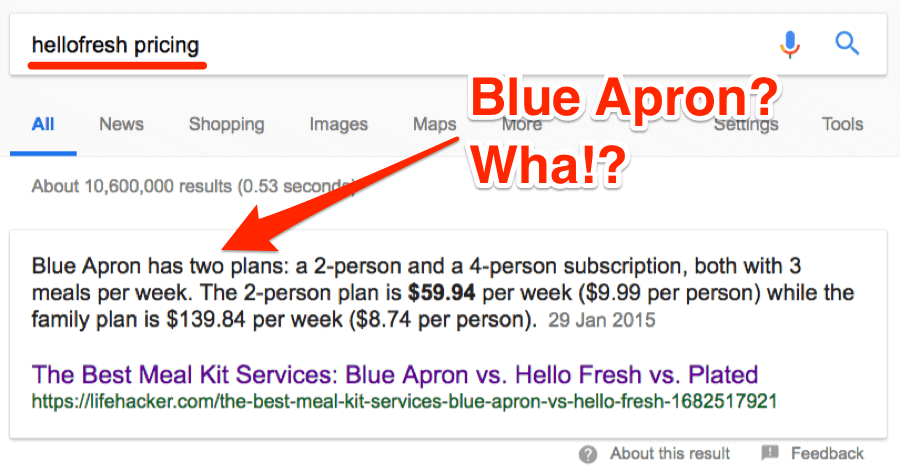
If the top 5 aren’t about you, can you locate gaps or searches with a lack of results that you can try to rank for?
Unfortunately, ORM is not always about the good times.
Reputation can also be formed by more than negative reviews on Trustpilot and Google alone. Think about comments, forums posts, and videos that might hold your brand in a negative light.
Search for your brand again. Are there any hate sites referencing you? Are there ‘rip-off reports’ that name-drop your brand?
If so, and if they’re high up on the SERPs for your brand, you’ll need to act fast.

These places, from GMB to ‘rip-off reports’ are all places that people might look for your brand. Afterwards, they might change their opinion on your brand – for better, or worse.
Think about who these people might be. It could be prospective employees. They might be looking to see what sort of ethical reputation your company has.
Or investors might be checking to see that there aren’t any black marks on your brand’s history. It might even be journalists looking to write about you and your business.
These are the types of people that are likely to do a deep dive into your online reputation.
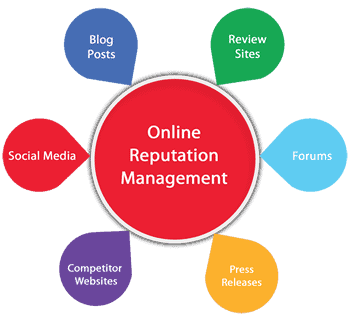
These are also all the sorts of people who will do their due diligence and look past Google’s first page. Remember that we said Google isn’t the only search engine? Well, the world doesn’t end past page one either.
Make sure that your ORM efforts consider the good and the bad things that might occur about you online.
Great, so now we know where to look and what to look out for. With that locked down, let’s move on to how to actually manage all this information about you.
So reputation is other people’s perceptions of you. Brand reputation is how that applies to your business. And it can all be formed online by reviews, forums, and content etc.
So what is ORM? It can be affected by your SEO, but it’s different. It’s not quite PR, but it does involve some elements of communication (like b2c conversations).
And it does encompass things like crisis management (which, if you want to learn more about – check out this guide!)
SO WHAT IS IT ALREADY?
Well, Techopedia defines ORM as:
‘The practice of crafting strategies. Ones that shape or influence the public perception of an organisation or individual online.’
So ORM drives public opinion about your business and your products or services.
Reputation management services give you the ability to discover what those opinions are. They also allow you to monitor (and even control) what people see when they look for your business online.

JSEO
By creating an ‘image’ for your brand, you can tailor, build and even re-build your online footprint. In turn, you can ensure that target clients see the relevant data you would like them to notice.
But it’s about more than just social media monitoring.
The short answer is, ‘everyone’. Whether you’re a personal brand or a business, you need to think about ORM.
Granted, each brand has different needs, and there’s no single solution for every problem. But across this guide, we’ll point out some areas that everyone should be looking at.
Earlier, we used the example of how you pick a restaurant. In the example, we pointed out that people tend to look at reviews for your company.
In fact, 86% of people Google ‘{your business name} + {reviews}’ before they even each out.
So what do they find when they search for you? The results could be low-stakes (but still negative). This could be something like a user clicking on a competitor’s site instead.
On the other side of the coin, the result could be something as massive as an industry-wide boycott of your brand. Your online reputation can have legal and financial implications for your brand.
This can happen on a micro- or macro-scale!
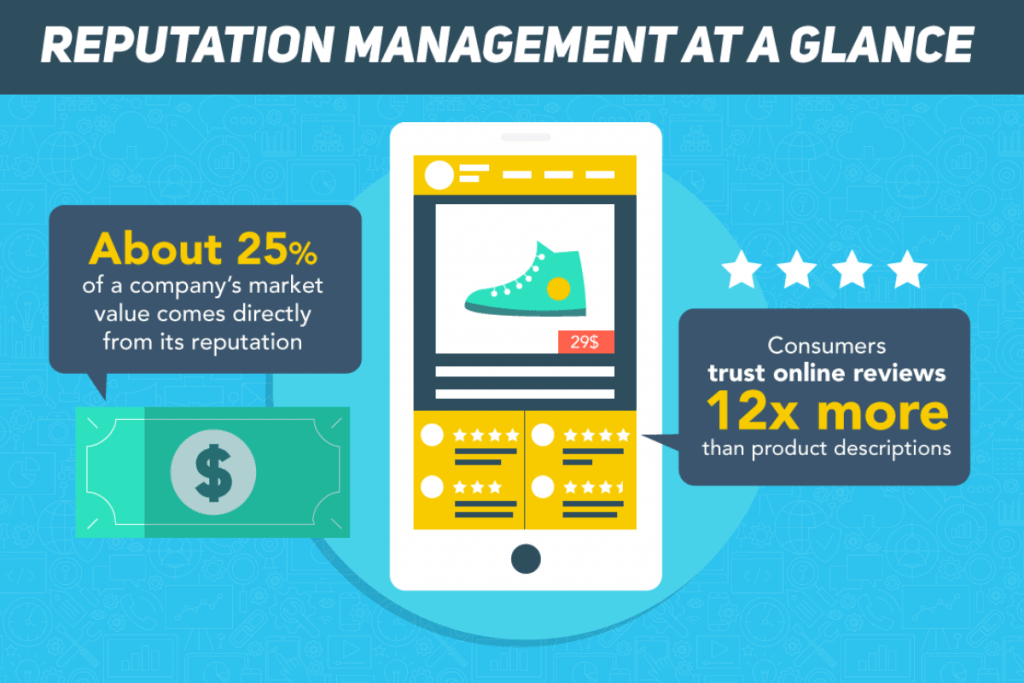
Web FX
But not having a bad reputation isn’t good enough. You need reviews and widely held views around your brand to be more than just indifferent.
Take this recent business survey, for example. 75% said that online reviews, comments and forum posts were essential to their reputation.
Not only that, they said the same of their impact on a company’s financial status!
So ask yourself how you’re winning people over. Is there a way that you can have more results surrounding your brand in your control?
We’ll explain this idea in more detail later in the guide. For now, just think about how:
Surrounding your brand can help you to control the results of SERPs and what people see about you.
If there’s one motto for ORM, it’s ‘control the top 5!’
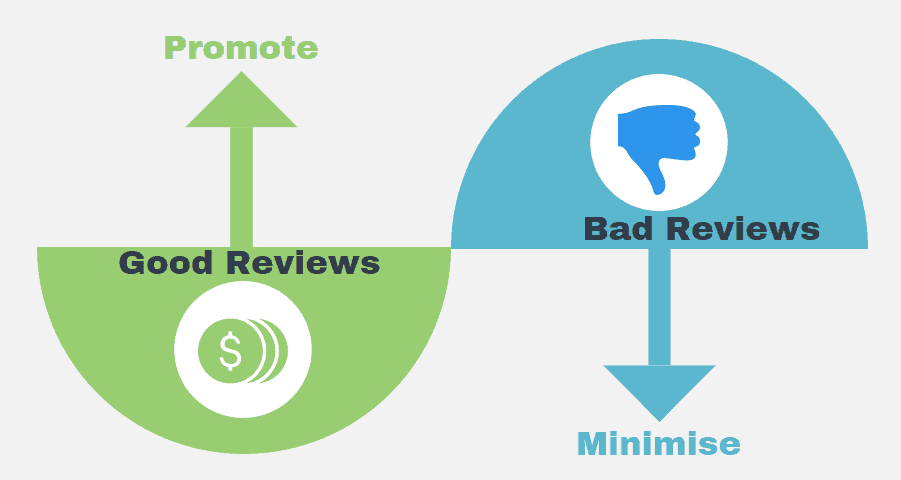
ORM is important to promote your positives while drawing focus from your negatives.
By countering, weakening, and even eliminating negatives online; you control the narrative.
ORM is slightly different from what we call ‘brand’, however.
Your brand might be comprised of things like your logo. This is who you want to be seen as with a clear customer focus.
This is different in a sense to your online reputation (as we mentioned earlier). ORM takes into account everyone from stakeholders to employees.
‘Brand’ is more about the choice-based economy – saying to a customer: ‘Hey we’re better than X, try us’.
Whereas, online reputation is more trust and social currency.
In this case, it’d sound something more like, ‘Hey try us instead of X, because we have better ideals’.
By ‘social currency’ we mean your effect on online and offline communities. It also means if, and how, people share your business with others.
Remember, don’t let a bad online reputation undermine the positive buzz around your brand!
Even negative remarks or scars online can be minimised. These could be from disgruntled customers, malicious competitors, and even trolls.
ORM is your key strategy to maintain consistency across all touchpoints. By this, we mean making sure that the attributes and associations of your brand are constantly the same. They need to be consistent and positive in all your customer interactions.
If you need concrete reasons as to why you need to invest in ORM, then consider this. Companies with good reputations also bounce back better from market dips.
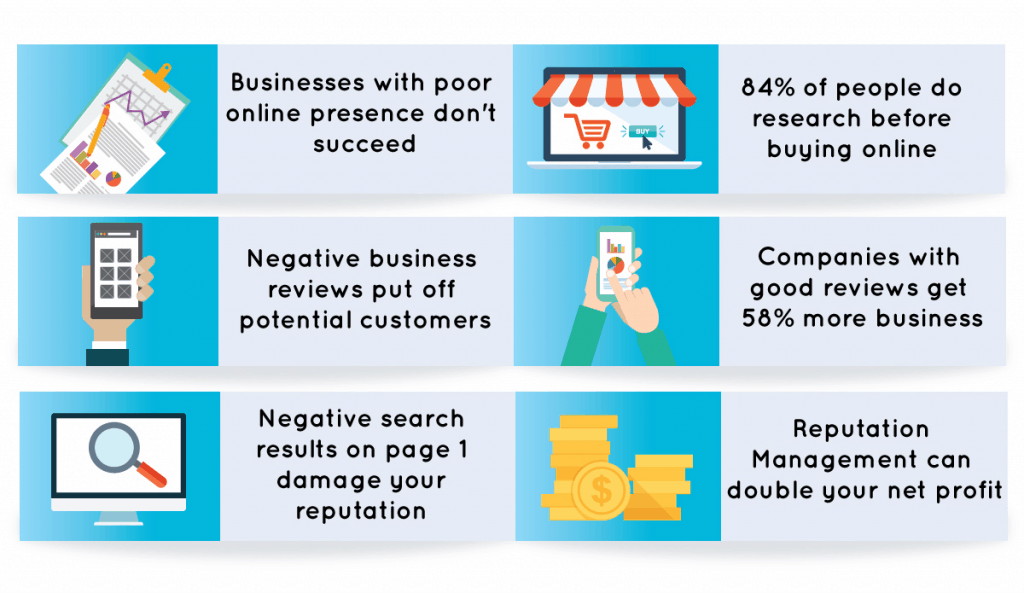
Reputation Station
They also tend to see benefits such as retaining top-level employees. While you can’t stop a fire from ever happening, you can minimise the risk if it does happen.
That’s the driving idea behind ORM: control your brand.
Because if you don’t control your brand, someone else might.
So what can you do, or hire someone else to do, to manage your online reputation in today’s day and age?
On a broad scale, we might say something like ‘engage with your customers on social media’. Or ‘make sure that your business listing is accurate’.
But let’s look in-depth at some of the tactics you need to be using.
It’s all very well and good having a GMB listing and positive review on Yelp. Realistically, though, that might not be the first place that consumers hear about you.
People get news, recommendations, and content from social media platforms these days.
Make sure that you have an active and positive presence on these platforms. Then you can increase your social currency with potential users.
Also, think about using monitoring tools (which we’ll list and explain in a bit). Tools like Google Alerts are handy. And, by checking, say, your Twitter mentions you can see what kind of engagement you’re getting.
The thing about transparency is that it’s imperative to ORM. But it’s also a delicate balancing act.
You want employees and customers to talk about your products and services publicly. But all your b2c conversations need to be consistent and monitored continuously.
You might want to think about where your best 1-to-1 communication channel is. Is it responding to reviews on Trustpilot? Or is it answering queries and complaints on Twitter?
A great example of a company creating a clear channel is Nike’s Nikechat. They’ve got their own site dedicated entirely to customer questions and complaints.
Another important point about transparency is not to hide criticism. Sure, it’s ok (it’s great actually!) to drive down poor reviews with heaps of good ones. But don’t try to eliminate digital ‘black marks’ with questionable tactics.
We said that transparency is a case of balancing plates. And it does come with problems. Does your team have the time and innovate-enough employees to respond?
The internet is ‘always-on’ across the world. Tweets that could damage your reputation might come in at any time of day. Your team needs to be swift to act. And they need to act delicately.
Just think, if a customer complaint about your company goes viral, it’s tough to undo.
Being transparent and ‘present’ on social networks also comes with other potential problems. We’ll look at them in-depth later.

Design Rush
For now, consider this. Can competitors spam negative comments? Can they leverage negative reviews on the sites where you can be found? Are there going to be too many negative comments there from your customers?
And should you even respond at all? Don’t worry; we’ll answer this as well in just a couple of sections.
If you don’t invest in your ORM, think about how you could be missing out where it matters – like sales!
Take this survey, for example. In it, 49% of consumers said they need at least a four-star rating before choosing to use a business.
As we said, a less-than-ideal reputation might be sending customers to your competitors. If so, you’re going to see a sub-par ROI for any marketing efforts you might have in place.
So you need to be looking at all of these areas concerning ORM in the digital age.
Sometimes, your reputation can be affected by things that are, to some extent, out of your control.
Your online reputation doesn’t always rely on your products and service alone, sadly. Below, we’ll list some of the groups who may, for whatever reason, attack your reputation.
Now, we’re aware that we said these aspects of ORM were out of your control. Disgruntled customers sort of are and aren’t out of your control.
Maybe your employees are failing to help a customer come to the desired conclusion. Or perhaps your services aren’t working. Then, customers have the right to voice their opinions.
Nowadays, these complaints might surface first on social networks. While they’re unlikely to hurt your actual business, they shouldn’t be taken lightly.
Especially because this is the only group we’ll look at that your company will have a vested interest in.
On the other hand, there are internet trolls.
There’s a big difference between someone who has a genuine grievance and someone who’s just doing it for the sake of it.

When (hopefully you won’t have to!) dealing with trolls, though, some of the points in this guide stand true:
Earlier, we said that your competitors might use negative reviews against you.
They might even create fake accounts to post reviews or Tweets.
But what are the actual ways in which these groups can impact your online reputation?
Firstly, there’s inflammatory content (which we’ll explain). Then there are two main areas where your online reputation might be affected.
Poor product (or service) reviews could come from trolls, customers, or competitors.
If you’re selling anything and people are buying it, then someone’s going to write a review about it sooner or later.
The odd negative review is unlikely to harm you or your company. In fact, the odd sub-5 star review can be useful for your business. It highlights areas for improvement and makes you look ‘human’!
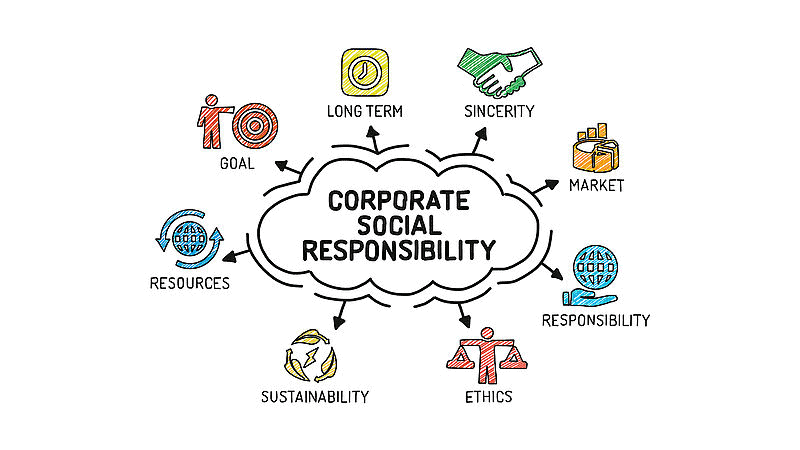
The Scott Partnership
However, if by any chance, you have one customer that you didn’t had a good relationship with and is seeking for retribution, they can contribute in a harmful review against your company. They will most likely leverage on visited review sites and post their experience with your business. It can also be about their encounter with you as the owner.
We’ll explain how to react later in this guide. Just remember, though, you still need to work on your product/service. If a customer has a bad review, use it as an opportunity to review your product/service.
When we get around to responding, we’ll explain how you can turn a positive into a negative with proper ORM.
A more general way that your online reputation can be damaged is with negative press.
Most of the time, people don’t pay too much attention to bad reviews (and hopefully get pushed down by good reviews). On the other hand, the lousy press can stick around.
Earlier in this guide, we talked about due diligence. We told you to think about everything available online about your business.
Are there past lawsuits? Or are there personal controversies that potential investors of customers might uncover?
These sort of reputation bombs can damage your reputation and sales long-term. Other sites that can do this might look a bit like:
These are the sort of things you don’t want to see when you search for your brand online.

In another useful guide, we said that we disagreed with the idea that there’s no such thing as bad press.
Remember, your business doesn’t work in the same way that we view celebrity crisis management.
Being labelled as a ripoff or a scam tends to stick around. It leaves an impression for longer than ‘Celebrity X’ getting photographed drunk!
Now this all might sound a bit scary but don’t worry, below we’ve listed some solutions to these problems.
It can be overwhelming (and hurtful) to get negative reviews about your product or service. So we’ve come up with some tried-and-tested ways of combating this issue.
Is negative content the first thing people see when searching for your brand?
Not exactly the best way to create the first impression is it?. So what do you do if you can’t ‘control the top 5’ just yet?
Usually, it’s unlikely that you’ll simply be able to remove harmful content about your brand.
What an ORM service can do, however, is create a plan to push that content down in SERPs. If it’s past the end of the world on Google page 2, it’s a lot less likely to be seen!

Patently
We’ve touched upon the ethics of content demotion and suppression.
You shouldn’t necessarily bury bad reviews, for example, just because they’re bad. Remember that good ORM includes your business being seen as transparent.
But you can suppress the content that you control. For personal brands, this could be anything from drunk pictures of you to mugshots.
For a business, it might look more like editing or deleting 404 not found pages. Or pages with out-of-date pricing information.
Much like anything worth doing to promote your business, ORM needs constant care.
You’ve got more than just social listening and checking your review sites in your ORM arsenal.
Think about checking your link profile. Then you can reach out to sites with incorrect mentions and information about you.
Maybe potential leads are getting frustrated because they can’t get to your business. Or because listed information is outdated. If so, you could be losing out on sales!
We said that we’d tell you what to do about reviews and we weren’t lying. We’ll put this in bold so that it sticks in your mind.
DO RESPOND TO REVIEWS!
But wait, you might be asking, even the bad ones? Well, yes, actually. Ultimately, the defence is the best offence.
So making sure that your product/service is going to get good reviews anyway is where we’d start.
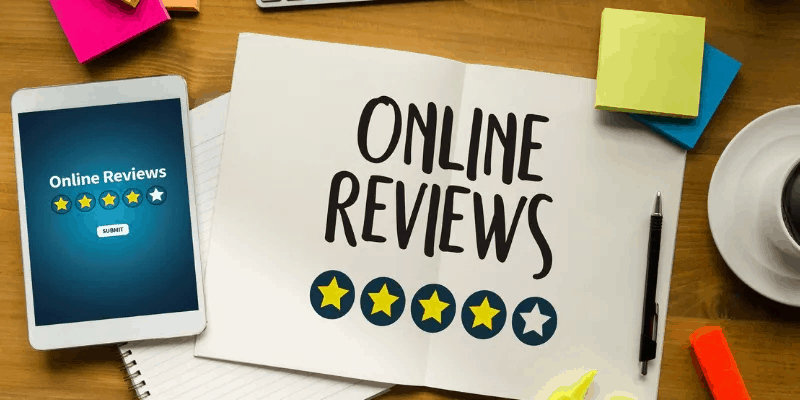
But, if people do have issues with your business, respond to them. Professionally and objectively make your consumers feel cared for.
Try to mitigate their anger first. And only talk about the facts. Then, encourage others who do love your product/service to share their opinion also.
Don’t leave negative reviews to fester and show your company as either uncaring or unaware!
But don’t worry yourself with fake or anonymous reviews. You can usually spot these as making wild or unfounded claims. Chances are, they could be from trolls or competitors.
Now you might be thinking it’s all doom and gloom at this point. Just stick with it. We’re going to move on to how you can proactively influence your online reputation positively.
There are a lot of keys to effective ORM which rely on you growing your business’ profile online.
Posing yourself as a thought leader in your field can influence views about your brand.
This can work for both a personal brand and a business. You need to ask yourself – ‘what are your credentials?’.
By highlighting these, you can add to perceptions about your social responsibility.
For your business, perhaps you could display awards or badges. These could be of associations and charities that you’re partnered with on your landing page.
In this sense, we can call this CSR (Corporate Social Responsibility). CSR not only positively raises your profile but builds trust with customers.

Econsultancy
We spoke earlier in this guide about content suppression. Content suppression is a reactive tactic for ORM. In contrast, content management is a proactive one.
By creating meaningful, on-brand content, you can positively push your product/service.
We keep returning to this point about ‘what do people see when they search for your business?’.
Contribute to your profile with high-quality content and ‘control the top 5’.
On the other hand, no content at all or poorly created, ‘thin’ content can be as bad for your image as malicious content.
You need to inform, target, and engage your audience with relevant content that has some value.
This point ties into content creation. We said before that a lack of information about your business could also be harmful.
How is your company going to be transparent online if they’re not even visible? Where do people get directed when they search for you?
When customers search for you, they should find information that excites them. Make sure you not only create but curate positive online information.
In regards to all of these points, you need to have some consistency.
You might already have an excellent online reputation. However, this does not ensure that clients will equate it with your message or label.
ORM is primarily concerned with assisting you in the development of your brand. You must do this in a way that customers are delighted with their interaction.
Another aspect is that they are attracted to your brand in the first place.
Think about where those ‘b2c conversations’ take place. You need to make sure that your communications are:
And make sure that they’re not:
You need to be professional and recognisable at every touchpoint with customers. This means using the same tone in ads as well as emails.
It could also mean using the same stock of digital assets for websites and billboards.
Have a clear voice and aesthetic.
If you’ve taken our advice about content creation, then it’s time to think about brand promotion.
Anything from:
can open opportunities for your ORM. It can also make potential customers who weren’t aware of sit up and take notice.
One great way to promote your brand is through writing guest posts for relevant blogs. But it get more interesting; let’s have a look at one tactic from ahrefs.

In their example, you can use guest blogging to do a bit of authority management and get a link.
What’s interesting is how you can leverage guest blogging to counter a negative review. You can do this by writing a guest post in your niche about a topic relating to keywords with links to your product.
That all sounds a bit complicated. Let’s break it down.
In this (pretty cool) example, you’ve boosted your SEO with a link and posed yourself as an authority in your niche.
You’ve also directed potential customers away from a negative review. That might have been the first thing they saw when searching for your brand and ‘sectional sofas’.
If you can rank your guest post to appear above the negative review in a SERP, then you can effectively redirect the narrative!
Now that’s a lot to take in. So let’s just recap how to build a reputation and some tips for ORM that you can use today!
Building a positive online reputation is about creating and curating. This refers to what people see, and think when they search for your brand.
You want to centralise your public ‘image’ and tone. You also want to monitor the type of content that people associate with you.
A few areas to start might be:
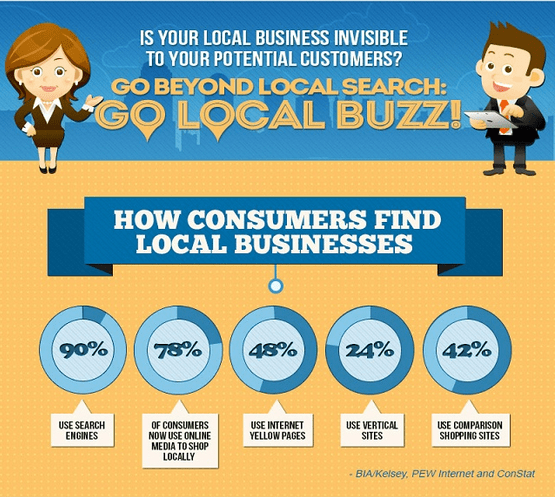
User Worthy Media
Now let’s have a look at some tips for managing that reputation that you’ve built.
You could think about funnelling traffic with regards to reviews. Try sending out an email blast for reviews from existing/past customers. Within the email, you could have two CTAs (calls to action).
One with ‘leave a positive review’ could take customers to your GMB, Trustpilot, or Yelp page. Whereas ‘leave a negative review’ could redirect customers to a feedback form.
By funnelling this process, you can minimise the negative reviews that are displayed. At the same time, you can add to positive ones and get feedback!
If you want to run a review acquisition campaign, think about automating it.
Why not update b2b or b2c templates (like invoices or order confirmation) with a CTA?
Invite people to take a second to give some feedback. Then you can capture more reviews along the journey rather than after the fact.
This should be drilled into you by now as we’ve been talking about listening, monitoring, and touchpoints.
But remember to talk to customers not only when they have to come to you. Monitor your Twitter feed and be proactive.
Ask customers as you’re working with them. This could be face-to-face or over the phone. Ask your employees in-office even.
If you sell a product or service in a physical location, make the review process easy for customers.

Have a process ready with an iPad, for example. This is also a great way to scale reviews as people tend to leave more positive comments face to face!
By now we’ve given you a lead on most of the secrets of ORM. But you might still be wondering, how can I set this all up on my own?
Well, below we’ve listed a few tools and software that can help you get started on some of the points in this guide.
We all know by now that you need to monitor your reviews and social mentions. But, you need to do more than just keeping an eye on review sites and check Twitter occasionally.
Otherwise, your ORM efforts will fall short. Or you’ll just waste all your time.
Instead, think about using some of these tools that we’ve listed below. With them, you can build and maintain your brand.

G2
Earlier, we spoke about centralising all your online usernames and social handles.
Usually, this can be quite a slog. And you don’t want to be late to the party and end up with a corporate profile with the handle ‘mybrand_72!’.
With Knowem, all the legwork is taken out of the equation. You can secure your URLs and usernames across all your networks.
It even informs you where your brand name is being misused. This could have a direct impact on your online reputation.
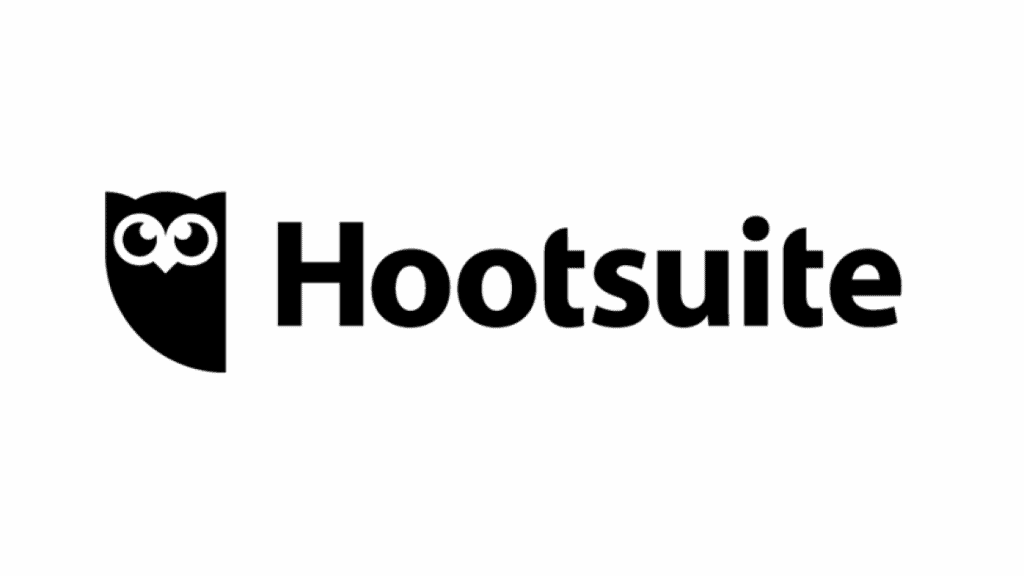
PC Mag
Hootsuite is probably the king when it comes to social media management.
It’s great for not only social listening but scheduling. With it, you can monitor the conversations that people are having about you online.
With Hootsuite, you can identity thought leaders and potential brand advocates. These are the sort of people who you can approach to boost your profile.
What’s also really cool is that you can set up alerts about brand sentiment. Is a customer complaint going viral? Be the first to hear about it.

Another great tool for alerts and to ensure the real-time reaction of your brand is Google alerts.
Like Hootsuite, you can monitor the web for new content and mentions about your brand. That way, you’re never caught off-guard.
Much like tools like Feedly, Google feed can also help you stay on top of news in your niche.
Know what’s being talked about. Then you can start thinking about creating content to boost your reputation positively.

Backtweets (formerly BackType) lets you search through a Tweet’s archive. You can search for links and shortened URLs that were sent on Twitter.
With Backtweets, you can monitor links that are sending people to your site. Or you can even monitor potentially harmful sites defaming you.
This is especially useful if there’s a specific thread or hashtag that you need to investigate.

Earlier in this guide, we talked about a great tactic from ahrefs to promote positive reviews.
Well, apart from great ideas, ahrefs also has a great tool. With it, you can search for popular branded search terms. You can then take this information to contact blog or website authors.
Reach out to people that have links back to your site, or information about your business. Then you can keep information about your brand up to date.
Or, you could even look at those branded search terms and create and rank your own content. Then you can own the top results for your brand.
These are also just a few of the tools that an agency offering ORM services will be looking at.
Another great place to look at that you can do yourself would be social media. In this digital age, a lot of negative reviews and complaints might not appear on review sites.
Monitoring your mentions on social media, with or without a tool like Hootsuite, is key to ORM. It’s also a great place to boost your reputation with real-time b2c conversations and action.
Just take a look at the picture below. In it, Oxfam turned a potentially disastrous situation into a positive. They listened and responded to a customer grievance and boosted their CSR.

Social Media For Development
So, you’re thinking about using all those tools or maybe even outsourcing these efforts to an agency. Now you might be wondering, though, what does brand reputation look like in real life?
Let’s highlight some of the lessons from this guide with a couple of case studies.
It’s safe to say that BP Oil’s Deepwater Horizon spill could have ruined their company. Negative press, customer sentiment, and their reputation were at an all-time low in 2010.
If you need to refresh yourself on the incident, check out this news article.

However, in the light of a PR storm (with no little degree of crisis management!) BP pivoted their business.
By focusing on lowering carbon investment and emissions, BP weathered the storm. We’re not saying it’s quite as easy as pushing down some bad reviews. Or that the incident has been forgotten. But they are still here.
Instead of focusing on the negative connotations, they decided to pivot altogether. The result was an invigorated brand that is still a market leader today.
And then we have the flip side of the coin. For this example, we’ll be looking at how a simple note on an Applebee’s receipt caused a PR nightmare.
Let’s head to Applebee’s St Louis, in January 2013. There, a pastor hosting a party refused to pay the 18% service charge. Instead, she crossed it out on the receipt and wrote ‘I give God 10%, why do you get 18?’.

What might have been an innocuous comment turned into something much larger. And not for the reason that you might think. We’ll try and give you the short version.
The waitress who posted a picture of the receipt in question was then fired. This was on the grounds of sharing a customer’s personal information.
This resulted in posts to Applebees’ social media pages calling for her to be re-hired. Users then splintered off and created boycott groups.
When responding, Applebee’s allegedly deleted users’ comments and blocked people. They then ignored the issue altogether. They reverted to posting food pictures unrelated to the incident on their socials.
These were overrun with negative comments until the event gradually passed over. In their first quarterly report of 2013, however, the company reported a 42% decline in profit.
We’re not saying the two things were related but…the two things were related.
If only someone at Applebee’s had read this guide! Instead, they got landed with what we call the ‘Streisand effect’.
This is when attempting to hide, remove, or censor information; it has the opposite effect of publicising it. (It’s named after the actress who tried to suppress certain photos of her home but only drew more attention to them).

Giphy
They unethically buried and hid comments. Plus, they didn’t listen to consumers. They responded, but reactively. All in all, Applebee’s ORM tactics blew up in their face.
The result? We can see the clear effect that your reputation can have on your sales and customer sentiment.
If you don’t want to make the same mistakes as Applebee’s, you might want to consider hiring some professionals.
Before you do, however, let’s have a look at what you should expect from a reputation management service.
If you want to build and maintain a good reputation online, you might want to outsource your efforts.
ORM is a constant process which requires your brand to be always ‘on’. After all, who can tell when a product review might go viral?
Once the damage is done, it’s hard to go back.
With an agency that offers reputation management, you should be asking specific questions. You should be looking to see if they can create, restore and/or elevate your brand’s online image and reputation.
You need to ask questions like
You want to find a service that answers all these questions. You want an agency that promises to promote your brand across all platforms in a positive light.
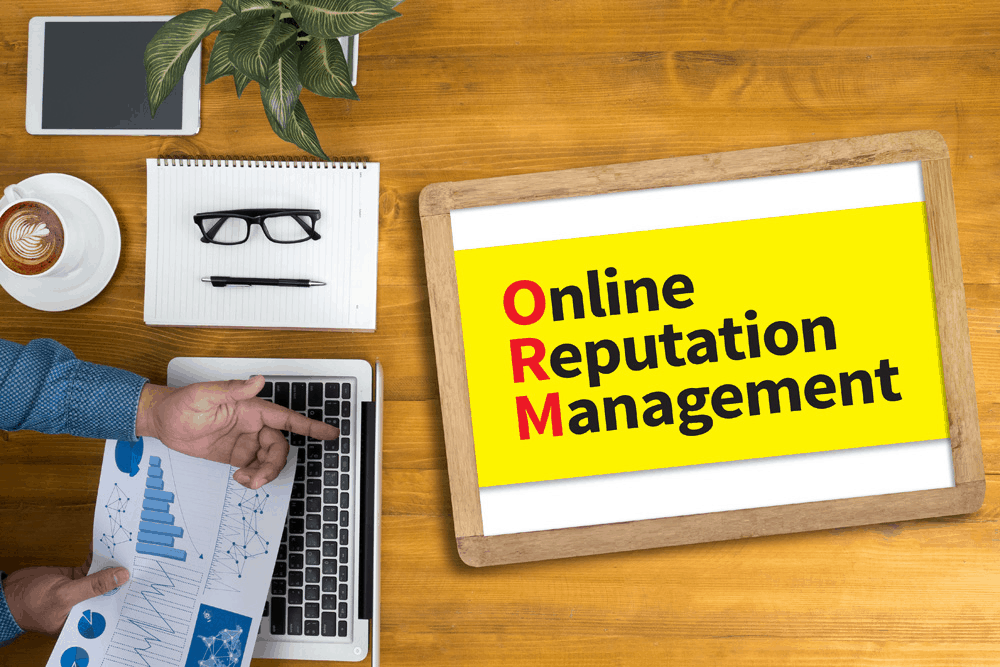
So there we have it. Your ultimate guide to reputation management. Well done for making it this far!
Before we hand you over to some frequently asked questions, let’s just recap what we’ve learned.
We know now what a reputation is and how and where it’s formed. This can be anywhere from blogs to your social media channels.
We also know now that rivals and even trolls can affect your online reputation. These are all groups that can mess indirectly with your sales and general success.
So how can you manage them?
Well, there are two ways. The first would be reactive – by pushing down negative reviews and content.
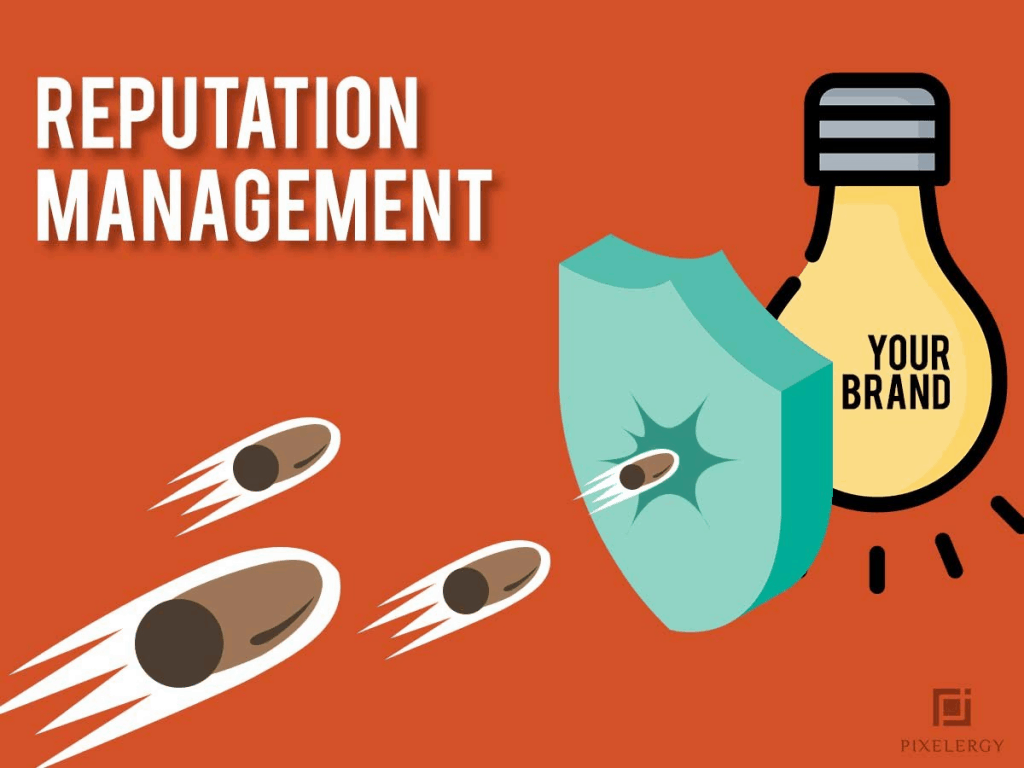
Pixelergy
Here at Pearl Lemon, however, we prefer to do this only as a necessity. Instead, we champion tactics like authority marketing and content creation and management. Then we can make sure that you’re building a reputation proactively.
Promote the positive press, content, and reviews surrounding your product/service online. Then no one will remember a few less-than gleaming comments. Make sure that you’re doing your best to ‘control the top 5!’.
When conducting ORM, however, it can be time-consuming and hard to be objective. If it’s your own brand or image, it might be challenging to know what content to cut and how to handle poor reviews.
These are all things that an agency like Pearl Lemon, can handle for you.
So why not jump on a call with us? At Pearl Lemon, we can help you to establish and grow your online reputation. We’ll do this safely and in-line with your brand.
Until then, check out these FAQs below if you have any further questions.
Online reputation is how your company, business, or personal profile is perceived across the internet. It can be the digital reputation of a person, product, or service as seen online.
Their perceptions are affected by several factors that they see whenever they look or research about someone or something. These factors may include the initial response they give and the common engagements towards that topic.
In an objective view, what they primarily find are online content regarding the person or business. They see it in different platforms across the internet.
Online content may be the things that people see on your site, blogs, SNS posts you’ve written or that others wrote about you. It can include photos, short clips, promotional materials, a PR post, press reports, directories, feedback articles, or Quora discussions.
This information is all about your online reputation. This is significant as it has an impact on your integrity, validation, and control. An excellent web reputation is also essential for gaining customer confidence.
Businesses and individuals must work hard to establish and keep a favorable internet presence.
If people say something negative about you or your company, it can harm your corporate objectives.
It can be made worse if others interpret or end up sharing those opinions.
ORM stands for Online Reputation Management. It is the deliberate technique of strategizing and executing strategies. Specifically, approaches that have a positive influence on your internet presence.
Earlier in the guide, we answered ‘everyone’. It doesn’t matter if you’re a personal brand or a big corporation. Either way, you need to stay on top of what people say and think about you online.
ORM is an ongoing process, but some great techniques that we’ve highlighted in this guide are:
At Pearl Lemon, the answer is yes! Some ORM services might offer to bury or delete bad reviews for you. Most of the time, this isn’t possible.
A lot of the time, it wouldn’t be ethical either. Negative reviews are an opportunity to reflect on your product/service. And they’re a chance to rise to the challenge.
An ethical way to deal with this is to overwhelm SERPs with results that you control. At the root of this issue, though, you need a product/service which gets good reviews anyway.
Then you can positively manage your online reputation.
You’ve probably tried Googling a lot of things. Whether it may be an artist or a cafe on the downtown, we know you’ve used a search engine to find out more about someone or something. The first thing that comes to mind when you do research about something is to judge it, and to perceive a notion on it. That’s what online reputation management is trying to control.
The perception of how people see you online is arranged by ORM in a way that would gain you positive reviews and perceptions. So that even before they see your notable works or credentials, they already have a great outlook on you.
From our end, how online reputation management works is different. That’s why it needs to be personalised specifically to your goals and the problems you encounter.
Our experts begin by researching and knowing everything about you, your business, and the reputation you have built up until now, from those findings we can have a gauge of what we are about to handle. We then take the necessary steps for you to have an improved online presence and give you the results you want.
Following an investigation, many plans will necessitate some or all of the following:
Each situation and remedy is distinctive, but we can assure you that it will take time.
There is no simple solution to this situation, and anybody who pledges you one is lying.
The amount of time it takes to rebuild a tarnished image and/or construct a new a favorable one is determined by factors such as:
How difficult it is to suppress or remove any malicious feedback.
How long it takes for search engines such as Google to rank an adequate number of good content.
ORM endeavors should be viewed as at least a 6-month possibility.
We usually work hard to get you/your company a lot of media coverage. This awareness is coming from source information that we know will rank high enough for it to appear on Google’s Page 1.
An excellent illustration of a ‘exclusive’ with one title is an internet publication/3rd party blog. We can even construct them if no existing opportunities are available. We may, for instance, take surveys on your behest and release the results.
In some cases, the material is removed at the origin. This can occur if the content infringes the site’s contract terms.
Or if it breaches Google’s own regulations. If this emerges to be plausible, we will assist you in submitting a removal request.
Third-party content, on the other hand, cannot usually be removed.
This is particularly true if it is obtained legally.
This could include court documents, newspaper stories, and so on. Instead, we must work to ‘run it down’ in the search results.
Actually, they typically say pages one and two. When users look for something on the internet, they normally use Google. They’re seeking confirmation about a business or an individual.
About 50 percent of these search queries may lead directly to your official site. The vast bulk of the results page are displayed on Pages 1 and 2.
So, by ‘possessing’ as much of this as possible, you can totally manage your reputation. Control the top five and where individuals go to learn more about you.
According to studies, 90% of people only take a glance at the first page of SERPs. They form an opinion about a person, company, or item from the first page.
While conducting qualitative experiment, 64 percent of customers trusted search engines. Customers assert to believe reviews online as much as they trust recommendations from friends and family.
All of this implies that your online reputation must foster trust.
Businesses with positive customer feedback entice more consumers.
For instance, each 1* boost in your reviews rating results in a 5-9% sales increase. Consumers claim that if they have a richer experience, they are inclined to pay more for the same service.
Never forget the value of user experience (CX) to your bottom line.
Yes, we do. We work with different search engines and other platforms which use their own algorithms, such as Yelp, YouTube, and many more.
Remember, we said that Google isn’t the only search engine!
There is a restricted ‘Right to Be Forgotten’ law in Europe. It is required that search engines such as Google adhere to it.
It pertains to a case brought before the European Court of Justice by Mario Costeja González (2010). The case was primarily about data security.
This established a precedent that aided in the development of the 2013 “Right to be Forgotten” court decision. Please see this page for more details.
To qualify, you should be a European citizen, and the connection that shows up in a Google search should appear in a search for your name.
A photocopy of your passport or driving license may be required to verify your citizen status. UK residents can no longer be valid after exit from the european union countries.
Begin your partnership with by contacting us here. Then you can start deciding whether or not you would like to collaborate with us on your ORM. If this is the case, we can get to comprehend you and your priorities. Then we’ll arrange a meeting or phone call to go over what we need to do to create a work strategy.
No, but we will require some insights from you. We suggest that you schedule a meeting once a week. Then we can double-check and go over everything that needs your authorization.
Based on the scope of the work, additional items may be required/useful.
In any case, we will work with you on this as required.
We collect a range of assessment methods, such as comments, supporters, and blogger opinions. We analyze discussions and make them comprehensible. Then we work with you to create an assertive online strategy.
We also use a variety of specialized instruments. We can use these to record and monitor on interactions and link building. We can also look at content, social relationships, and shares. We can even monitor key phrases and rivals.
We conclude on performance metrics on monthly to track growth over time.
Perhaps not. You’ll have to keep your great reputation. You’ll need to monitor the situation and change them as needed.
People will leave bad feedback on review websites at any moment. Search engines can find and index the latest results. Keep a positive internet presence by observing and continuing to work on it on a regular basis. This will keep it in good shape.
The reputation management definition is fairly straight forward. Public relations specialists manage the reputation or social media presence of a company or person.
Managing your reputation online means that people across search engines and social media perceive your reputation in a certain way. People can manage their reputation to combat negative press and build positive ones.
You have to build as much positive content as possible to create a trustworthy image and to reduce doubt. Check out a reputation management guide to see techniques that can help your company.

Your brand is your story, and we make sure the world hears it. Don’t wait—book your PR consultation now and begin building your brand’s presence.